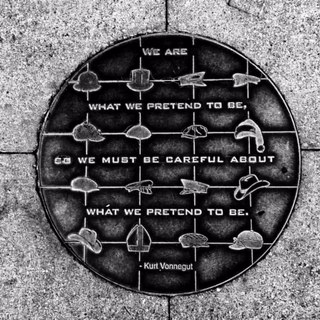Encouragement
Courage – noun
- The quality of mind or spirit that enables a person to face difficulty, danger, pain, etc., without fear; bravery
This week I’ve been thinking about courage and what prompts people to act. The word courage comes from the Old French (cuer) and the Latin (cor) meaning heart. In fact, one of the obsolete definitions for courage is “the heart as the source of emotion”. It could be said that having courage, or being courageous, is acting with heart.
The heart is where our passion and convictions come from. It’s the source of our deepest love. Continuing to extend the definition-being courageous is taking the risk to act on, and with, love. In this way, acting with heart equals acting with love.
It’s a compelling idea, being brave and taking risks. And yet sometimes it’s easier said than done. We need a little help to act bravely. It takes a kind word, a gentle nudge, or a bit of encouragement.
What happens when we encourage others? Two things actually. First, when we encourage another, we reinforce their belief in themselves. Their courage intensifies. Quite literally, we give them courage. This boost increases their willingness to act bravely on their passions and convictions. We support their acting on and with love.
I know this is true because I have felt it. I have felt my courage grow when I’ve received encouragement from someone else. It’s particularly powerful when it comes from someone I care about or hold in esteem. Their opinion matters more to me, and I am willing to believe what they believe.
The second thing that happens when giving encouragement is that we take a risk. (Or maybe this is the first thing that happens.) Because in giving encouragement, we extend ourselves in support of another. It is an act of love; it requires the courage of the encourager as well. This demonstration of courage may be part of what grows courage in another.
Experience teaches that there are only two motives for the actions we take in life. These are love and fear. I have tried to make it more complicated than that by looking through the lenses of secondary emotions. Feelings like anger, a sense of duty, or pride…or even states of being like impatience, frustration or laziness…can, at times, feel like motives. But underneath all of that, there remains only the two…love and fear.
Since we’ve talked about love being the motive for encouraging someone, what about discouragement? I would offer discouraging someone is motivated by fear and is equally powerful. Arguably there is some “useful” discouragement, say for children under the age of eight… “Don’t play in the street. Don’t speak to strangers. Don’t eat yellow snow!” But, this is a different kind of discouragement.
Discouragement as the opposite of encouragement is a dream killer; it is the hesitation that feeds our self-doubt. It can be subtle. A look, a casual remark, or even a lack of engagement may deplete someone’s courage without the discourager even realizing it. Or it may be more direct in the form of outright criticism. It says you are not enough.
For me, being an encourager takes vigilance. It takes courage. I believe it comes down to our emotional posture. Like love, courage is infinite. When we seek to love others and encourage them to act bravely, we are tapping into an infinite source of good. And this source can only serve to expand all goodness through that three-way connection.
Wherever possible, whenever possible, I choose to encourage others. I choose love.



One Comment
Pingback: